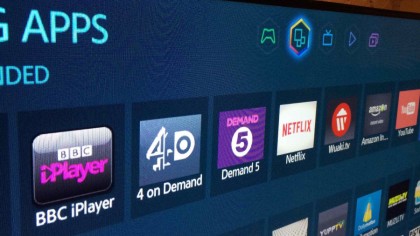They're people, not end-users: why the tech industry must ban buzzword bingo
Banish the de-humanising terms
Sign up for breaking news, reviews, opinion, top tech deals, and more.
You are now subscribed
Your newsletter sign-up was successful
The mistake of illiterate internationalism
Too often the tech industry is lazy, and takes the easy way out, believing that its global nature demands a global language. Cue poorly written instruction manuals packed with mistakes and bad writing, or another huge annoyance to people using a product – the series of unenlightening cartoon images on how to set up a gadget. Either way, such passive internationalism is nothing more than a cost-cutting exercise, and it's really obvious. People prefer to be talked to in their own local, colloquial language.
Active internationalism is arguably an even worse faux pas. For instance, in 2009 Samsung Electronics included a feature called Contents Library on its smart 'widget' TVs that included spoken children's stories, stretch workout videos and a 'party' mode that showed fireworks set to appalling pan-Asian elevator music. It was appallingly bland, and a lesson in globalisation gone wrong – design something to appeal to anyone, anywhere, and it will likely be palatable to nobody.

The online dominance of English is over
If internationalism and global branding is tricky now, it's only going to get more difficult. The rise of the millennial has a string in its tail – it's made up primarily of the much talked about 'next billion' people in developing countries, all of whom are new to the internet and mobile devices. It's a great opportunity for the tech industry to grow exponentially, but there's a problem; over 55% of the internet is written in English, but only 5% speak it.
The password/username problem
The frequent alienation of people using the internet is not just a language problem. One of the most common mistakes made by website developers is to fudge password/username protocols and favour heightened security over basic usability. When usernames and passwords cannot contain certain characters, or must contain upper and lower case letters and numbers, it frustrates people. The fact that this most often occurs in e-commerce only makes it a more heinous crime.
There are other archaic conventions used online that treat people like robots. After initial sign-up where it's usually necessary to enter a password twice for understandable typographical reasons, most websites then default to the home page and ask the person to sign-in again from scratch. That's a lot of typing of the same email address and login details.
Although they're symptomatic of a much deeper problem within the tech industry, at least those pathetic terms and conditions can usually be agreed with and forgotten about quickly. However, that doesn't remove the correct suspicion that impenetrable language is being used to deceive people, most often to harvest personal data (another example of disgusting tech speak).
In the end this isn't about corporate social responsibility, it's about being honest and transparent in addressing the needs of the only thing that ever matters – people. The tech industry needs to 'hit the back button' and remember that it's nothing without an audience, and that its audience aren't end-users or opportunities to harvest data, they're people who want to love great tech products and services – but only if the industry speaks to them and serves them. Technology is about people. So why not say so?
Sign up to the TechRadar Pro newsletter to get all the top news, opinion, features and guidance your business needs to succeed!
Jamie is a freelance tech, travel and space journalist based in the UK. He’s been writing regularly for Techradar since it was launched in 2008 and also writes regularly for Forbes, The Telegraph, the South China Morning Post, Sky & Telescope and the Sky At Night magazine as well as other Future titles T3, Digital Camera World, All About Space and Space.com. He also edits two of his own websites, TravGear.com and WhenIsTheNextEclipse.com that reflect his obsession with travel gear and solar eclipse travel. He is the author of A Stargazing Program For Beginners (Springer, 2015),
